Sebum imbalances can lead to several hair problems. Sebum is a substance that is produced and excreted by the skin's sebaceous glands and is often referred to as oil. Sebum coats the hair follicle. Sebum overproduction can cause greasy hair, thinning hair and eventual hair loss. Underproduction, on the other hand, can lead to dry, brittle hair, eventually resulting in hair loss. Brushing helps your hair maintain a balanced level of oil. Certain hair products can treat sebum build-up. Diet also plays an important role.
Get enough B vitamins from food if you notice sebum overproduction. A lack of B vitamins can lead to oily, greasy hair, according to Hairstyle.com. B vitamins are found in fish, poultry, meat, eggs, dairy products, leafy green vegetables, beans, peas, many cereals and some breads.
Reduce stress by taking a B complex vitamin. Stress depletes the body of B vitamins, according to "Psychology Today." Stress can lead to sebum overproduction, according to a Wake Forest University School of Medicine study cited by ScienceDaily.
Eliminate dandruff by consuming the Recommended Dietary Allowance for each B vitamin, suggests MayoClinic.com. Dandruff can be caused by excess sebum. The B vitamins are thiamine, riboflavin, niacin, pantothenic acid, B6, biotin, B12 and folic acid.
Consume biotin from egg yolk, liver and yeast. Lack of biotin, a B vitamin, can lead to hair loss, according to HolisticOnline.com
Consume foods with vitamin B6, including fortified cereals, beans, meat, poultry, fish and some fruits and vegetables. Vitamin B6 deficiency may also lead to hair loss, according to HolisticOnline.com.
Get plenty of pantothenic acid, or vitamin B5. Lack of B5 can also lead to hair loss. It's found in liver and kidney, yeast, egg yolk and broccoli.
Related Articles

Essential Enzymes for Hair Growth
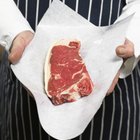
A Low-Cholesterol Diet Plan Menu

Vitamins for Mental Alertness

L-Lysine for Hair Growth
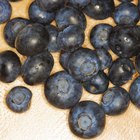
Blueberries for Hair Growth

How to Reduce Acne Inflammation
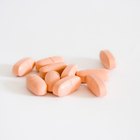
Vitamins for Damaged Hair

Can You Change Skin Tone with Food?
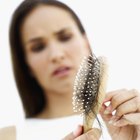
Is Zinc Good for Hair Growth?

Which Vitamins Can Help Reverse ...
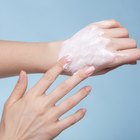
Lack of Nutrients and Flaky, Dry Skin
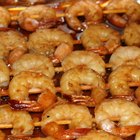
A List of Foods That Contain Choline

How to Control Frizzy Hair for ...
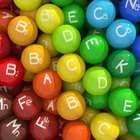
What Vitamins Help the Liver?
The Best Companion Foods for Vitamin & ...

Ingredients in Hairfinity Vitamins

Alternative Treatments to Nizoral ...
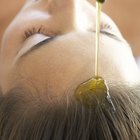
How to Nourish the Scalp

Can Age Spots Be Reversed?
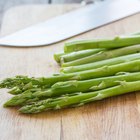
Top Vegetables With Selenium
References
Writer Bio
Erin Beck began writing professionally in 2008 as an opinion columnist for the West Virginia University student newspaper, "The Daily Athenaeum." She has worked in health promotion at the university and as a communications intern at the National Alliance on Mental Illness. She has a Bachelor of Science in journalism and a Master of Public Health, both from West Virginia University.